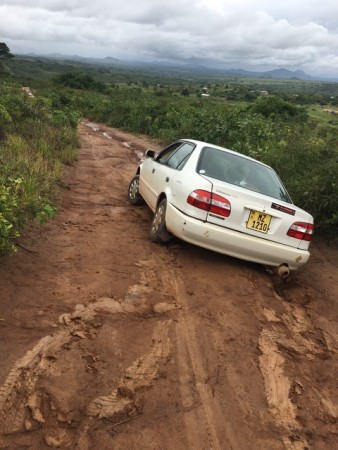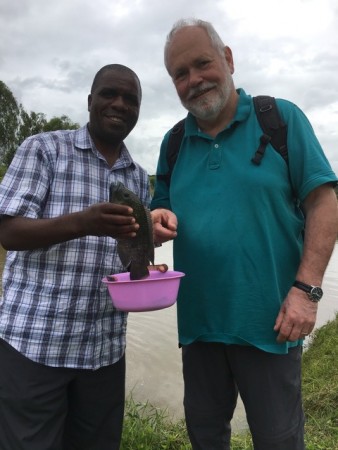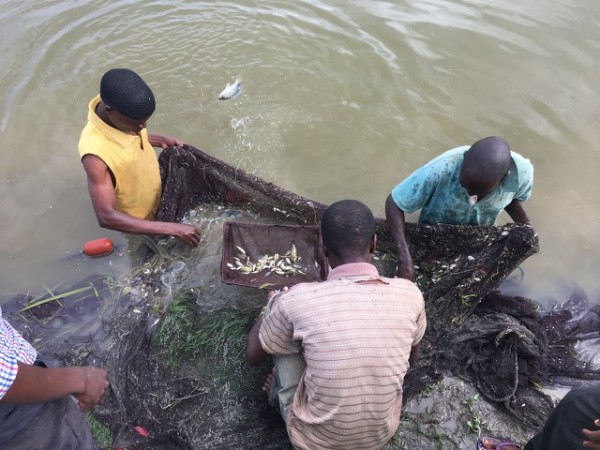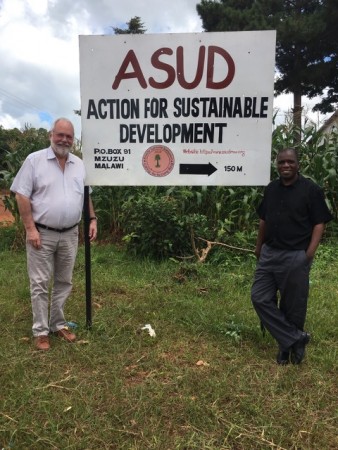Drive to Ecosolidar Project | Photo: U. Saint-Paul
As part of the German Business Foundation, the SES (www.ses-bonn.de) supports international cooperation worldwide. Its voluntary work takes place primarily in developing and emerging countries and in Germany. SES has set itself the task of actively using the great potential of volunteer specialists, managers and experts in retirement to contribute further to society.
All SES missions at home and abroad follow the principle of helping people to help themselves. Their aim is the transfer of knowledge and experience to improve the future prospects of others.
Via the SES I spent three weeks of last year in Surabaya, Indonesia, at the Marine Science Department of the National University Islam Negeri Sunan Ampel. My main task was to analyse current training and research concepts and to assist in their further development.
Earlier this year I spent three weeks in Mzuzu, Malawi to support a local NGO in the fishing industry (fish farming, disease control, pond construction for increased fish production).
ASUD (Action for Sustainable Development) is a local NGO with three full-time staff. In addition to the managing director (my contact person) two to three interns work there. ASUD was founded in 2009 with the aim of improving the living conditions of the poor rural and urban population. This is done through agricultural aid and the introduction of fish farming. ASUD has a project office in Mzuzu.
The combination of theoretical training measures with practical demonstrations in the field has proved to be very positive. However, the lack of a suitable off-road vehicle for the field trips was a problem. Especially during the rainy season the road conditions were so bad that the manager's private car got stuck in the mud and help had to be called for.
The projects I visited proved to be very successful in practice. The rural population was very open to ASUD's proposals. It was incredibly important that the initiative came from the locals, that proposals for solutions were jointly discussed and implemented in the form of joint work assignments. I got the impression that Thomas Ngwira is very respected and his advice is sought. Each project is very small and is supported by local and international donors and organisations. I found the idea of setting up a training and marketing centre for the agricultural population interesting. A corresponding piece of land is already owned by the NGO. Various crops have already been cultivated in rural areas. However, there is a lack of funds for the construction of a building.
There is also need for equipment (furniture, computers, Internet) at the project office. But above all, an all-terrain vehicle is necessary to be able to visit the individual projects.
The field trips have made the following problem areas clear:
- Pond construction must be optimised in such a way that the ponds can be emptied completely for fishing. This is also indispensable for necessary care measures.
- Currently the ponds are covered with tilapia. This also makes sense, as this fish species is native to the area and is readily accepted by the population. Since Tilapia becomes sexually mature at a very young age, uncontrolled spawning occurs in the ponds. This makes it difficult or impossible to monitor wax removal. I recommended the quick change to monosex (♂) Tilapia. This prevents uncontrolled spawning and loss of growth due to gonad maturation.
- The pond production is not documented in any way. These include initial and final weight, increase in length, mortality and feed use. This is the only way to reliably estimate production success.
It was a three-week stay that was interesting but also strenuous. I gained detailed insight into the living conditions in Mzuzu and learned that development aid is possible without great technical and financial support – although not easy.
The future will show to what extent my support was successful.
Words and photos: Prof. em. Ulrich Saint-Paul












